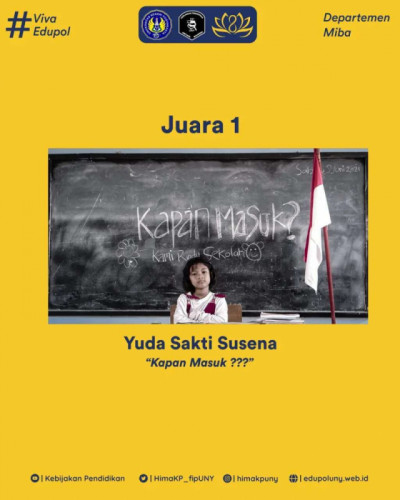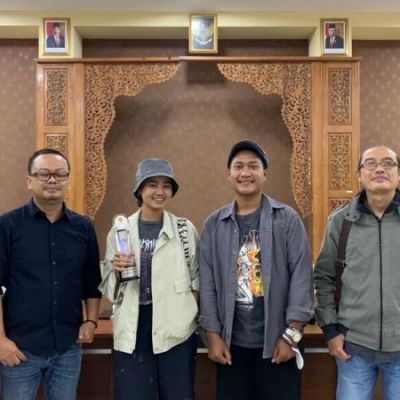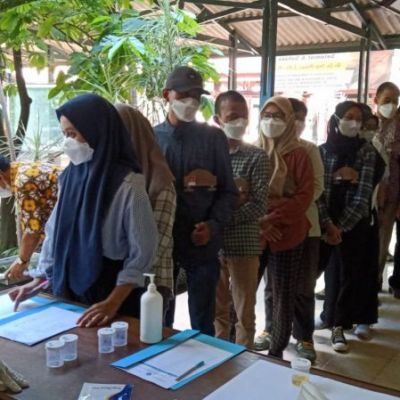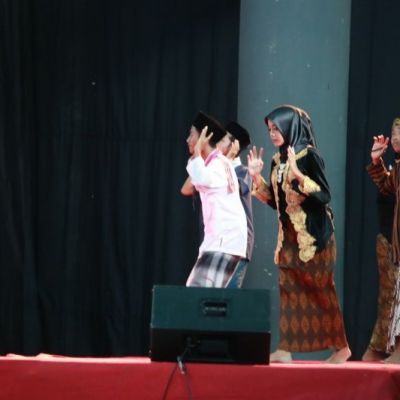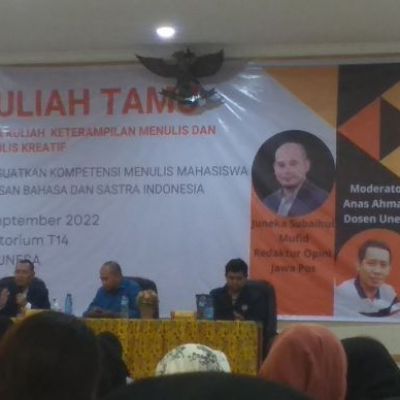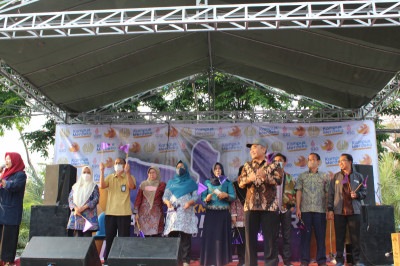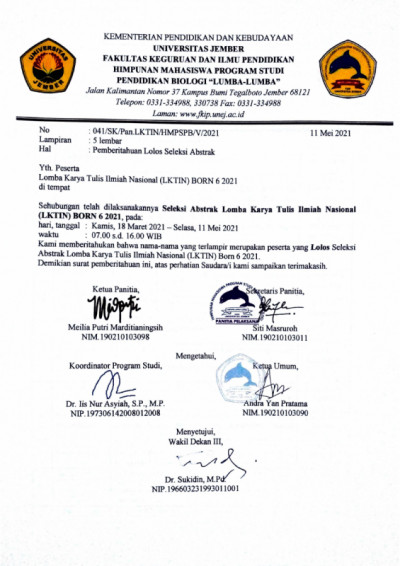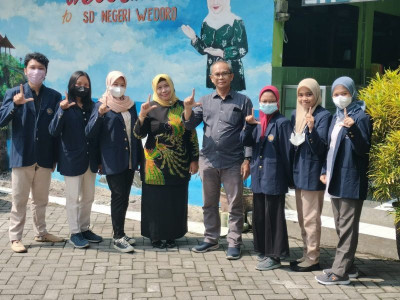Unesa.ac.id, SURABAYA – The Country of the Rising Sun is one of the favorite destinations for student exchange programs. This country which is famous for its punctual culture and discipline has its own magnet in attracting Indonesian students, including three students from the State University of Surabaya (UNESA) to study there.
The three students are Lintang Novitasari, Dinda Ayu Pratiwi and Cynthia Lailanisa Soegiono. They are undergraduate students of English Literature, Faculty of Language and Arts (FBS). They left for Japan after being declared to have passed the NUPACE program (Nagoya University Academic Exchange Program).
NUPACE aims to establish friendship, internationalize through education, and motivate Indonesian students to study or continue their studies in Japan. Lintang, one of the participants, said that the program will take place from April to August 2022.
During approximately five months there, Lintang and two of her friends learned a lot and gained new experiences, especially in Nagoya City, where they live there. The impression they get when they first set foot there is the environmental aspect.
“I was amazed by the cleanliness of the city. Very clean. If you want to dispose of garbage, you have to separate it and have your own schedule," said Lintang yesterday (Thursday, September 29, 2022). In addition, the walking culture there is one that makes them very surprised. Understandably, in Indonesia, everywhere, far close, even to the stalls are accustomed to using a motorcycle.
In Japan, said Lintang, people rarely use private vehicles, instead preferring to use public transportation which of course in terms of security, cleanliness and very adequate facilities. "For example, if we miss the train, the ticket is not forfeited, we can still use it for the next train with the same destination," he said.
In Nagoya, the later the night, the prices of goods or food in supermarkets are getting more and more discounted. Starting at 6 pm, food starts at a discount of 10-20 percent. The later the night, the discount increases gradually up to 50 percent. "If we want to shop at night, it‘s usually cheaper and can be more economical," he said.
The level of security in Japan, is fairly good. Well-connected security system. There is CCTV everywhere so that when there is a need at night outside it is safe. Although safe, it is advised to remain vigilant.
Very different from in Indonesia, he continued, regarding privacy rules. There, people can‘t take photos carelessly, especially in frames that someone else‘s face or face is caught accidentally. Ethics there, must ask permission first. Otherwise, the photo can be deleted.
From the academic aspect, they are also very different and this is what makes three UNESA students feel like they are being whipped. Education in Japan does not tolerate all kinds of cheating such as cheating, indiscipline such as rubber hours for example. “I‘m amazed, competitive, but diligent and disciplined. It‘s honest and polite. How do you do that," he explained.
The average teacher in Japan when they enter the classroom usually immediately gives a test or question related to the material to be given. Thus, students are required to study the material before class begins. Reading culture is also very high in Japan, every assignment given will be related to reading journals, books or articles and so on.
From there I brought a lot of provisions and experiences; polite, diligent and disciplined is not an option, but an obligation. In addition, learning is not a hobby, but also an obligation. In Japan, students are so busy studying that it‘s hard to find time to relax. In Indonesia, students are so busy that they forget to study. We should be able to slowly change this.
"It‘s not praising other cultures, but re-civilizing the values of discipline, diligence, mutual cooperation and so on, which are already in our own cultural roots. Only this value has not been internalized properly so it has not become a behavior in everyday life," he concluded. [HUMAS UNESA]
Author: Hasna
Editor: @zam Alasiah*
Photo: Lintang Novitasari Documentation
Something Really Great, Stories of UNESA Students Joining Student Exchanges in the Land of Sakura
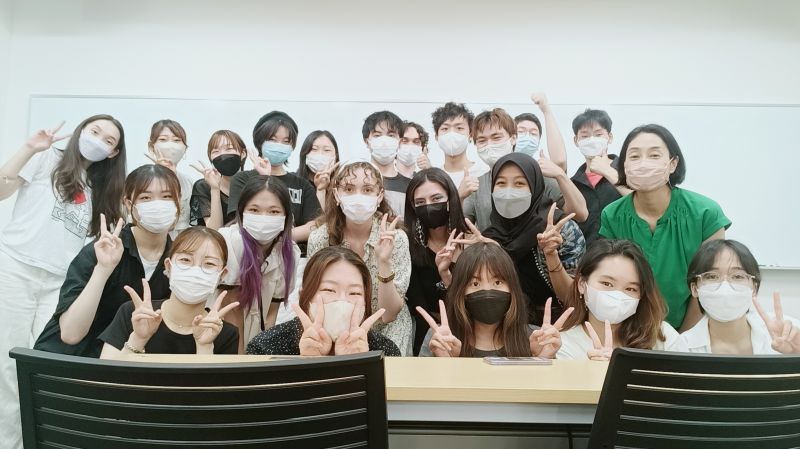
30 September 2022


